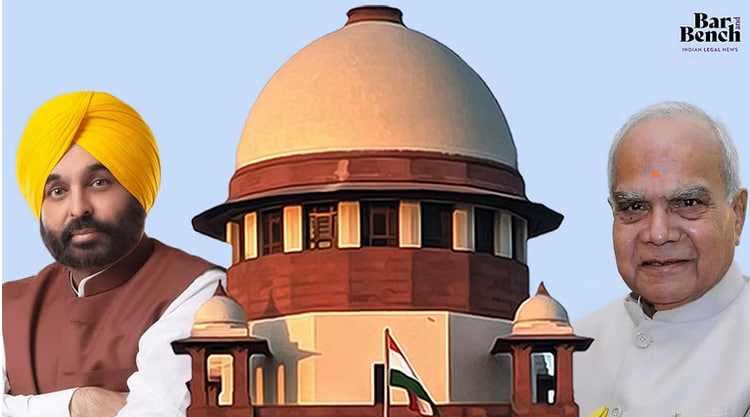A message for maturity : On Governors, Chief Ministers and constitutional boundaries
Governors and Chief Ministers should respect constitutional boundaries
Constitutional functionaries cannot let rancour prevail over propriety . This is the substance and import of the Supreme Court’s advice to the Governor and Chief Minister of Punjab that they should display mature statesmanship in handling their differences. Governor Banwarilal Purohit was indeed way-out of line when he indicated that he would act on the Cabinet advice to convene the Budget session of the Punjab Assembly only after he obtained legal advice on the Chief Minister, Bhagwant Mann’s response to some of his earlier queries. This stand forced the Aam Aadmi Party (AAP) government to approach the Court against the apparent refusal to call the Assembly session. However, the matter was resolved without judicial intervention , as the Court was informed that the Governor had summoned the House to meet as scheduled on March 3. The position regarding the Governor’s power to summon the House under Article 174 of the Constitution is now well-known . Even though it says the Governor shall summon the House from time to time “to meet at such time and place as he thinks fit”, a Constitution-Bench had, in Nabam Rebia (2016), ruled that the Governor can summon, prorogue and dissolve the House only on the aid-and-advice of the Council of Ministers. It is hardly likely that Mr. Purohit was unaware of this, but he must have taken such a position because of the state of relations between Raj Bhavan and the Chief Minister’s office.
The Court’s observations covered Mr. Mann’s questionable position too. In response to the Governor questioning the sending of some school principals to Singapore for training, he had replied that he was responsible only to the people of Punjab and not to a Governor appointed by the Centre. He was obviously wrong, as it is laid-down in Article 167 that it is the Chief Minister’s duty “to furnish such information relating to the administration of the affairs of the State and proposals for legislation as the Governor may call-for ...”. It is unfortunate that such instances of one-upmanship between Governors and Chief Ministers are becoming more frequent in various States. Both should be mindful of constitutional boundaries. Some Governors seem to believe that they can stretch their discretion to areas not specifically mentioned in the Constitution. The more germane reason for this is that incumbents in Raj Bhavan tend to take their role as the eyes-and-ears of the Union government too literally, and often get into the political domain . While they can indeed guide, caution or advise, they sometimes play the role of commentator , critic and even the opposition . This does not augur well for constitutional governance
